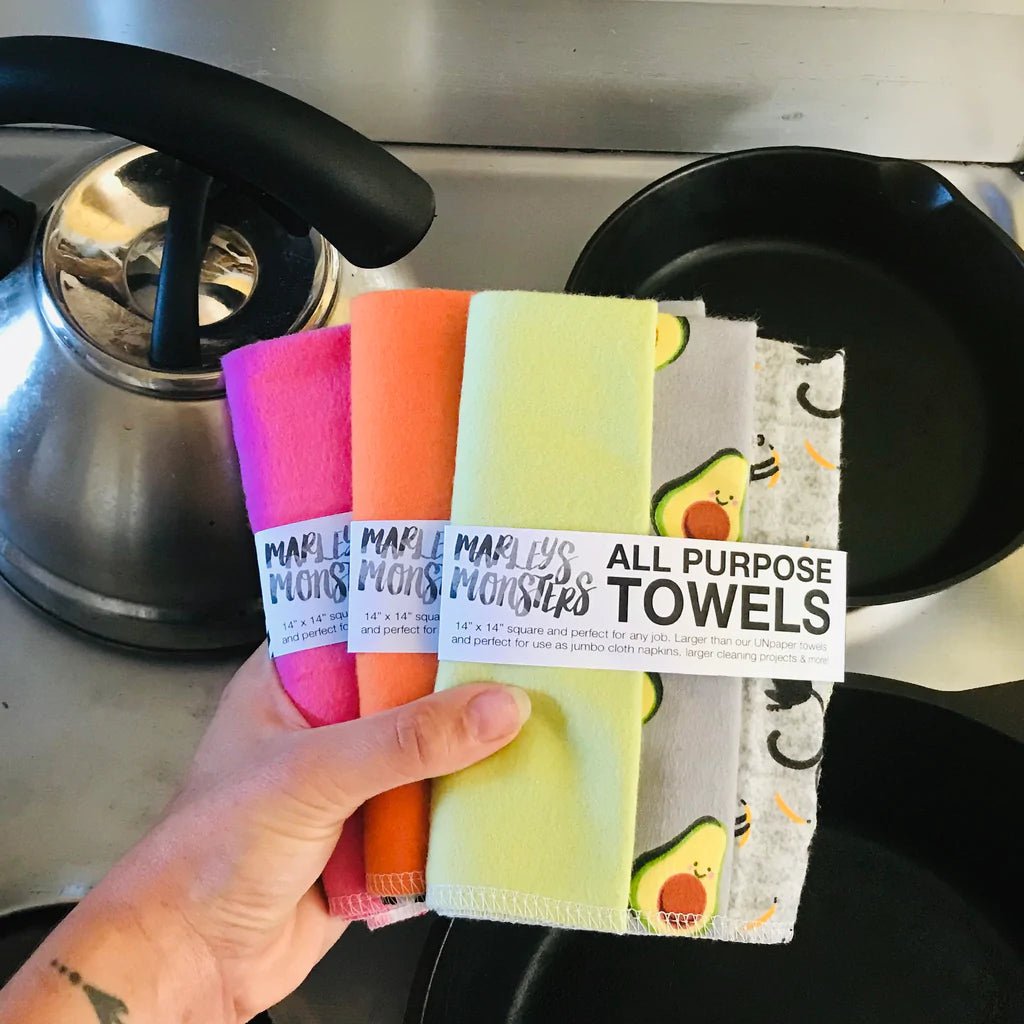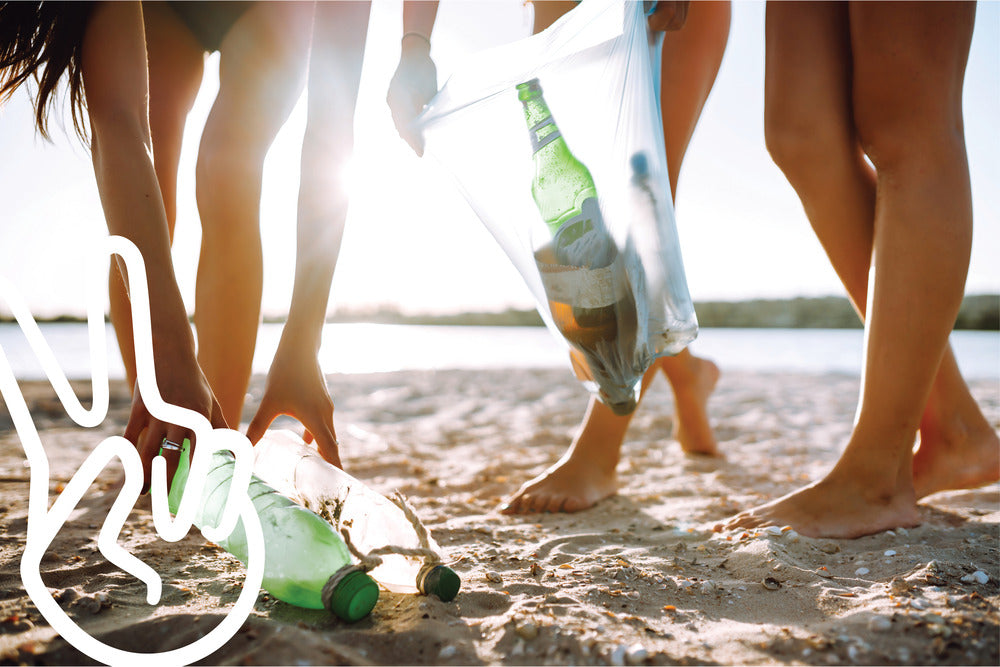
1. Ditch the Paper Towels: “Reduce, Reuse, Recycle,” is the old adage we have all heard related to sustainability. Marley’s Monsters’ UNpaper® Paper Towels are a prime example of a product intended to do just that, with several styles and types available.
The average person uses around 3000 paper towels at work in a given year. This is a lot of money going into the trash. It’s also a terrible waste of resources. If you use ten paper towels daily, you generate about 0.06 lbs CO2 or the equivalent of driving 173 miles. UNpaper® Paper Towels helps you decrease your carbon footprint.
The UNpaper® Towel, our version of paperless paper towels, is designed to reduce waste, cut costs, and also fit your unique personality and style. We believe our UNpaper® Towels are the best replacement for kitchen paper napkins on the market. They can even be rolled up on a tube, like paper toweling. The reusable towel rolls serve as a manageable paper towel replacement. Plus, they’re made in the USA. UNpaper® Towels are an essential eco-friendly investment in the future of the planet.
We are often met with a wide range of questions about the efficiency, use, and actual environmental impact that Marley’s Monsters UNpaper® Towels have. We answer these questions and share more on the negative impact of paper towels on the environment.
Annual Carbon Impact:
Driving to the Grocery Store Weekly: 101 tons CO2/year
Paper Towel Production per family: 129 lbs/ year
2. Rethink Doing the Dishes: Once you move to Eco Friendly Towels, think about the carbon footprint of your cleaning routine. Kitchen sponges are bad for the environment because they're made from non-renewable materials and have a short lifespan, meaning there will always be a demand to manufacture new sponges. Kitchen sponges are often made of plastic. The manufacturing of kitchen sponges is an energy-intensive process that requires large amounts of water and chemicals. Plastic production leads to 4.5% of greenhouse gas emissions globally. Plastic Production also leads to pollution in our waterways and oceans--and ultimately harms marine life. Additionally, when you throw out your kitchen sponge, it doesn't biodegrade like other items made from natural materials like cotton or paper towels do. Instead, it ends up in landfills where it takes hundreds of years for it to decompose!
Washable Kitchen Sponges are a great way to reduce the amount of plastic you use. Marley’s Monsters Washable Sponges are the perfect replacement for disposable sponges. Not only do they look great, but they're also eco-friendly and super easy to use! They're also stronger than disposable sponges, which means they last much, much longer than disposable ones. This means less energy consumption and less waste--and that's a win-win! Plus, reusable sponges mean you can buy less at the store, which means less time spent shopping for things you don't need. And who doesn't want more free time?
With Washable Kitchen Sponges, you can up your handwashing dish game. Why? Dishwashers are a waste of energy. They use a lot more water than handwashing and therefore contribute to the depletion of freshwater resources. The electricity they consume is also produced using fossil fuels, which contributes to climate change. And dishwashers are not that much more convenient than handwashing. In fact, it may be faster and easier to handwash your dishes! The fact that dishwashers don't get dishes clean is one of the biggest problems with them. If you don't rinse your dishes before putting them in the dishwasher, you're just wasting energy and water to run an ineffective machine.
Handwashing is a great way to ensure your dishes are clean--and it's also faster than using a machine!
Annual Carbon Impact:
Driving to the Grocery Store Weekly: 101 tons CO2/year
Sponge Production per family: 129 lbs/ year
Using a Dishwasher: 1554.9 lbs/year
3. Buy Well-Made Items:
Buying eco-friendly products is a great way to reduce your impact on the environment, but it's important to remember that buying fewer things, in general, is even better.
Americans have become addicted to consumerism. Americans waste .32 Tons of carbon with miscellaneous expenses--not to mention the wasted money!
Eco-friendly goods are meant to prevent excessive consumerism, which has been shown to use up a lot of resources and cause waste. No waste products are the best way to think about buying--you want to have nothing go to a landfill.
Marley’s Monsters doesn’t make things that are wasted. We believe that the best way to reduce our environmental impact is by making things that don't need to be replaced and doing so in a way that's sustainable.
Marley’s Monsters believes in making things that last. Marley’s Monsters doesn't want you to have to replace our products for years, and when you do, we want them to be recyclable or as compostable as possible while still maintaining longevity. That way, when it's time for them to go, they'll go back into the earth instead of clogging up a landfill.
Annual Carbon Impact:
Driving to Stores Weekly: 101 tons CO2/year
Miscellaneous Purchases: 32 Tons of carbon



